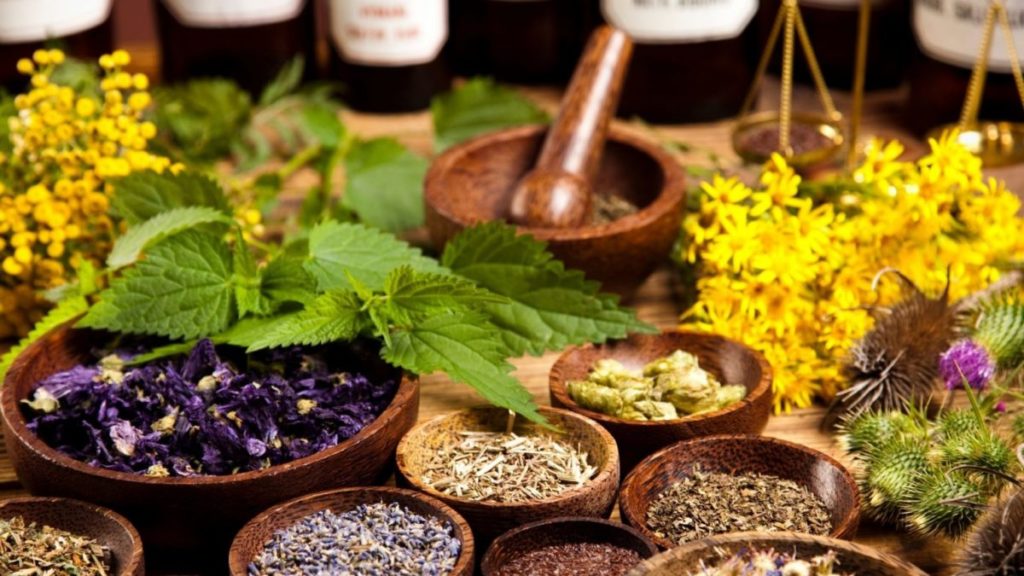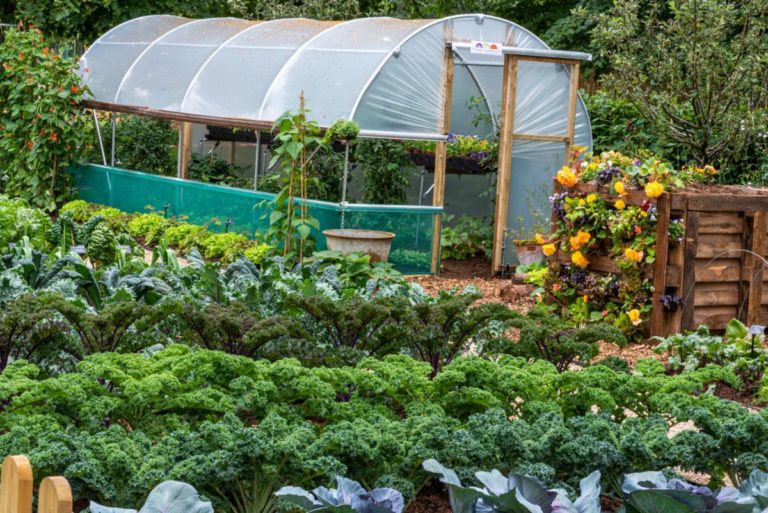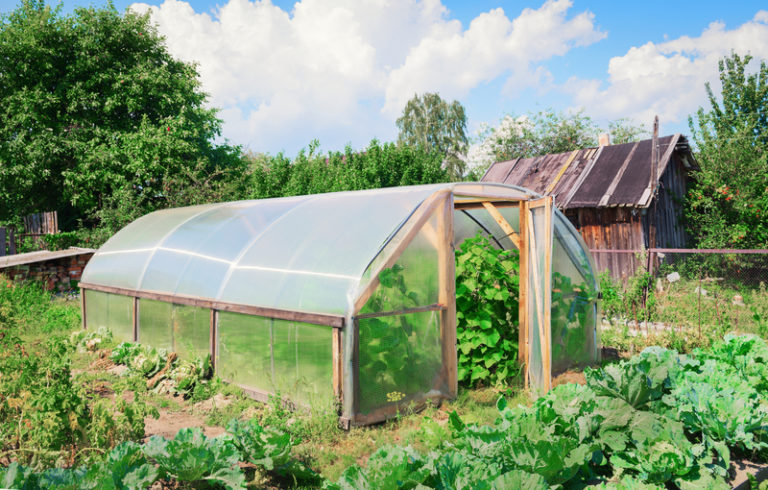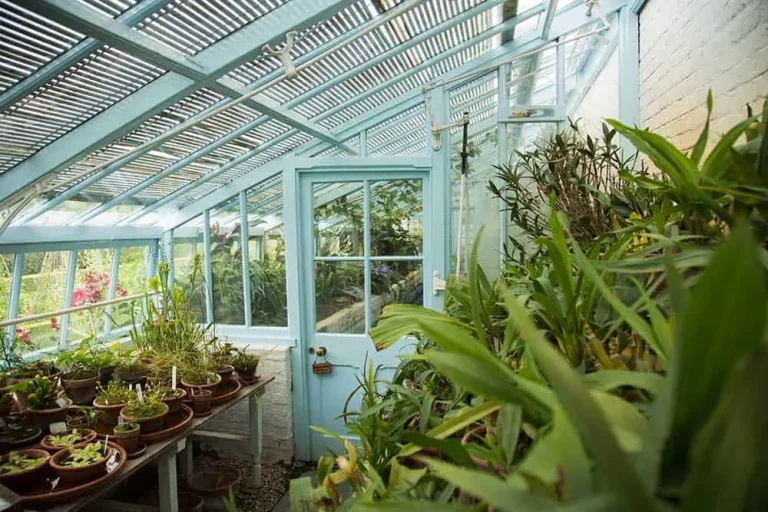Transform your backyard into a therapeutic oasis by cultivating medicinal herbs in your own apothecary garden.
With the right knowledge and preparation, you can grow a variety of herbs that will not only enhance your outdoor space but also provide natural remedies for common health issues.
Whether you’re looking to alleviate stress, soothe sore muscles, or boost immunity, growing medicinal herbs in your backyard apothecary is the perfect way to take control of your wellness and create a sustainable, self-sufficient living space.
Choose the right herbs
Not all herbs are suitable for medicinal use, so it’s important to choose herbs that have a history of medicinal use and are easy to grow. Some popular medicinal herbs include lavender, chamomile, calendula, and echinacea.
Some popular medicinal herbs that fit these criteria include lavender, chamomile, calendula, and echinacea.
Lavender, for example, has been traditionally used to help with relaxation and anxiety, and its calming effects can be attributed to its high levels of esters and terpenes.
Chamomile, on the other hand, has been used for centuries to soothe upset stomachs and promote relaxation, thanks to its high levels of flavonoids and volatile oils.
Calendula, also known as marigold, has antiseptic and anti-inflammatory properties that can help to treat wounds and skin conditions.
Echinacea, a popular herb for boosting the immune system, contains polyphenols and flavonoids that have been shown to have antiviral and antibacterial properties.
By choosing these herbs, you’ll not only be able to take advantage of their medicinal properties but also enjoy their fragrant aromas and beautiful blooms.
Choose the right location
Most medicinal herbs prefer well-drained soil and full sun, but some herbs like basil and mint can tolerate partial shade. Make sure to choose a location that receives at least 6 hours of direct sunlight per day.
When selecting the right location for your medicinal herb garden, it’s essential to consider the light and soil requirements of the herbs you plan to grow.
Most medicinal herbs thrive in well-drained soil and full sun, as this promotes healthy growth and optimal fruiting.
However, some herbs like basil and mint can tolerate partial shade, so it’s essential to research the specific light and soil needs of each herb you plan to grow.
As a general rule, choose a location that receives at least 6 hours of direct sunlight per day, as this will provide the optimal conditions for your herbs to flourish.
Ensure that the soil drains well, as herbs can quickly become waterlogged and suffer from root rot if the soil is too dense or waterlogged.
By choosing the right location, you’ll be well on your way to growing a thriving medicinal herb garden that will provide you with an abundance of fresh, fragrant herbs for years to come.
Prepare the soil
Medicinal herbs prefer well-drained soil that is rich in organic matter. Add compost or well-rotted manure to improve the soil’s fertility.
Preparing the soil is a important step in growing medicinal herbs, as they thrive in well-drained soil that is rich in organic matter.
To improve the soil’s fertility, add a layer of compost or well-rotted manure.
Compost can be made from a mixture of vegetable scraps, leaves, and grass clippings, and can be applied as a thin layer on top of the soil.
Well-rotted manure, such as that from cows or chickens, can also be mixed into the soil to add nutrients and improve its structure.
This will not only benefit the medicinal herbs, but also other plants and microorganisms in the soil.
Consider incorporating other organic matter like straw or wood chips to improve the soil’s structure and drainage.
By taking these steps, you can create a nurturing environment for your medicinal herbs to flourish.
Plant at the right time
Plant medicinal herbs in the spring or fall when the weather is cooler. This will help prevent summer diseases and ensure a longer growing season.
When it comes to planting medicinal herbs, timing is everything!
The ideal time to plant these valuable crops is during the cooler months of spring and fall, when the weather is more moderate and conducive to healthy growth.
By planting in these seasons, you can avoid the scorching heat of summer and the harsh cold of winter, which can be challenging for these delicate plants.
Planting in the spring or fall allows the herbs to establish a strong root system, which will support their growth and resilience throughout the growing season.
This careful timing also helps to prevent summer diseases, such as powdery mildew and leaf spot, which can be rampant during the hot and humid summer months.
By planting in the cooler seasons, you can ensure a longer and healthier growing season for your medicinal herbs, resulting in a bountiful harvest that will provide you with an abundance of beneficial herbs for your wellness practices.
Water wisely
Medicinal herbs need consistent moisture, but overwatering can lead to root rot and other problems. Water deeply but infrequently to encourage deep root growth.
Watering medicinal herbs requires a delicate balance between keeping the soil consistently moist and avoiding overwatering, which can lead to root rot and other problems.
To encourage deep root growth and healthy plant development, it’s essential to water these herbs deeply but infrequently.
This means providing adequate water to satisfy the plants’ needs, but not so much that the soil becomes waterlogged.
Allowing the top 1-2 inches of soil to dry out between waterings can help promote healthy root growth and prevent overwatering.
It’s important to monitor the soil moisture levels and adjust your watering schedule accordingly.
By watering medicinal herbs wisely, you can help ensure they thrive and provide optimal health benefits.
Harvest correctly
Harvest medicinal herbs at the appropriate time, usually when they are in full bloom. Cut off the leaves or flowers, leaving a few inches of stem intact to promote new growth. Dry or preserve the herbs properly to maintain their medicinal properties.
To harvest medicinal herbs effectively, it’s essential to do so at the appropriate time, usually when they are in full bloom.
This ensures that the herbs are at their peak potency and have the best flavor and aroma.
When harvesting, cut off the leaves or flowers, leaving a few inches of stem intact to promote new growth.
This technique allows the plant to continue producing new growth and ensures a bountiful harvest in the future.
After harvesting, it’s important to dry or preserve the herbs properly to maintain their medicinal properties.
Drying herbs helps to preserve their flavor and aroma, while preserving them in a suitable medium, such as oil or alcohol, can help to extract their medicinal properties.
Proper drying or preserving techniques can help to prevent spoilage and ensure the herbs remain effective for their intended use.
By harvesting and preserving medicinal herbs correctly, you can ensure a bountiful and effective harvest for your herbal remedies.
Use organic pest control
Avoid using chemical pesticides, which can harm the medicinal properties of the herbs. Instead, use organic pest control methods like introducing beneficial insects, using neem oil, or spraying soapy water.
To keep your herb garden thriving and healthy, it’s important to use organic pest control methods that are free from chemical pesticides.
These harsh substances not only harm the delicate ecosystem of your herb garden but also strip away the medicinal properties of your precious herbs.
Instead, adopt natural and eco-friendly techniques to keep pests at bay.
One effective method is to introduce beneficial insects, such as ladybugs or lacewings, that prey on harmful pests.
These beneficial insects are a great addition to your herb garden, providing natural pest control while also pollinating and improving soil health.
Another option is to use neem oil, a natural pesticide derived from the seeds of the neem tree.
Neem oil repels and kills pests without harming beneficial insects or your herbs’ medicinal properties.
You can spray soapy water to control pests.
This mixture of mild dish soap and water is harmless to humans and pets but toxic to pests.
For a more potent solution, you can add garlic or onion extracts to the mixture.
Not only do these plants repel pests, but they also boost the immune system of your herbs and promote healthy growth.
Remember, organic pest control methods not only keep your herb garden healthy but also contribute to a greener and more sustainable future.
By adopting these natural techniques, you’ll be ensuring a safe and chemical-free harvest for you and your loved ones to enjoy.
Learn about the herbs
Take the time to learn about each herb’s medicinal properties, how to prepare and use them, and any potential interactions or side effects. Consult with a qualified herbalist or healthcare professional before using the herbs for medicinal purposes.
When it comes to using herbs for medicinal purposes, it’s essential to take the time to learn about each herb’s properties, preparation, and potential interactions or side effects.
This knowledge will help you use the herbs safely and effectively.
* Medicinal properties: Research the specific health benefits of each herb, such as anti-inflammatory, antibacterial, or antiviral properties.
* Preparation: Learn how to prepare the herbs, such as chopping, crushing, or infusing them in water or oil.
Different preparation methods can unlock different properties of the herb.
* Use: Understand how to use the herbs, such as making teas, tinctures, or salves.
Different forms of application can also affect the absorption and effectiveness of the herb.
* Interactions and side effects: Consult with a qualified herbalist or healthcare professional to understand potential interactions with other medications or health conditions.
Some herbs can enhance the effects of medications, while others can interfere with them.
Some herbs can cause side effects, such as stomach upset or allergic reactions.
By taking the time to learn about each herb’s properties, preparation, and use, you can ensure safe and effective use for medicinal purposes.
Consulting with a qualified herbalist or healthcare professional can also provide valuable insight and guidance.
With the right knowledge and precautions, herbs can be a powerful tool for maintaining health and wellness.
Want More? Dive Deeper Here!
Hey there! If you’re the type who loves going down the rabbit hole of information (like we do), you’re in the right spot. We’ve pulled together some cool reads and resources that dive a bit deeper into the stuff we chat about on our site. Whether you’re just killing time or super into the topic, these picks might just be what you’re looking for. Happy reading!






